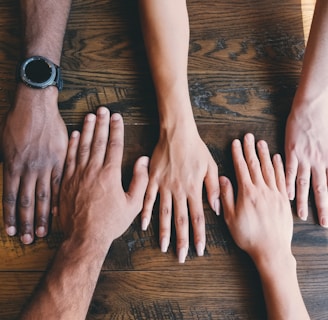DEI: Could it be a Wolf in Sheep's Clothing?
As compassionate people, it is difficult to say no to helping others out who we perceive to be victims. We want to help; it is in our nature. But the question we need to ask ourselves is whether the policies that commonly fall under the rubric of "DEI" are doing more harm than good.
SOCIAL ISSUES
10/17/20253 min read


The Definition of DEI
The phrase diversity, equity, and inclusion (aka DEI) would appear to be describing something that we can all get behind. After all, the United States today is a diverse nation. For hundreds of years, people have emigrated from all over the world to America to seek job opportunities, religious freedom, and a better way of life. While many immigrants have been greeted with open hostility and persecution, their enormous contributions to American society cannot be understated. In fact, our nation's diversity has been and continues to be both its strength and a blessing.
Similarly, few can deny that the goal of equity is a universally accepted moral imperative. We all seek a world where wrongs are righted. A world where everyone is treated fairly. Justly. Compassionately. Where everyone is given an equal opportunity to succeed and prosper. Where the laws of the land apply to everyone equally, and no one is above the law.
And who doesn't like the idea of inclusion? After all, no one wants to be left out. To be excluded. And unwarranted exclusion runs contrary to our understanding of what is fair, particularly when it is fueled by a contemptuous intolerance for others rooted in bigotry. How can we truly stand together as a nation if we are hopelessly fragmented by our own inherent diversity?
Yet hiding behind the DEI catch phrase is something called policy. And it is the policies that cloak themselves in the DEI banner that we unfortunately need to be wary of.
Peeling Off the Label
If you describe what utopia should look like, I think you would agree that it would be a place where:
everyone has an equal opportunity to succeed and prosper, and
everyone is treated equally and fairly under the law.
And if we want to make our world more like our vision of utopia, we need to take steps to achieve those goals. We need to strip away the roadblocks that unfairly prevent some people from succeeding. We also need to make sure that the laws of our nation do not favor or disfavor anyone unfairly.
I think we would all agree that laws that favor or disfavor someone because of their social status, race, ethnicity, religion, biological sex, and/or political orientation would generally be classified as unfair. Treating people the same regardless of those factors should be our mantra. And it should take extreme circumstances to warrant any deviation from that norm.
Some would say that such extreme circumstances exist. They would say that our social institutions are inherently racist. That such racism is rooted in our nation's history, and that such conditions warrant attention from our government and nation in the form of special treatment.
Clearly, if such claims are true--and that is not to suggest that they are--then they need to be recognized and addressed. The question then becomes how should they be addressed. Should we target the symptoms of the disease? Or should we target the disease itself?
Two Wrongs
Growing up, my mom would tell me, "Two wrongs don't make a right". And she was right. You do not fix one injustice by committing another. Violating the rights of the majority to "correct" for a violation--whether perceived or real--of the rights of a minority is a terrible idea. Ideally, what we should be focusing on instead is creating the conditions where the rights of no one are violated.
Showing favor to one is to show disfavor to another. There is no reality in which one group of people can be favored without another group being disfavored. And it has been attempts to favor some over others that have been at the root of most social and political strife throughout human history. So, venturing down that path should be universally recognized by now as an extremely dangerous thing to do.
Of course, if you are a beneficiary of such favoritism, you see things differently. And should anyone be surprised about that?
The Enemy
If we want to create an enemy, let us not make our enemy our neighbor. Let us make hunger, homelessness, drug use, crime, and sickness our enemies. If we want to defeat poverty, let us provide the poor with a foundation upon which they can succeed: roofs over their heads, food in their bellies, attention to their medical needs, protection from the wolves that prey on them, and educational opportunities. Let us also focus on creating jobs for everyone. Jobs that people are willing to take, not out of desperation, but rather out of a desire to prosper.
Poking your neighbor in the eye and saying they are the cause of your problems is not a formula for success. It will not fix your problems; it will only aggravate them. And ignoring what might be truly causing your problems will mean your problems will never go away.
To move forward, we cannot take two steps backward for every step we take forward. And we may need to make a few sacrifices along the way; but they need to be the sacrifices we are willing to make, not the ones we are forced to make.